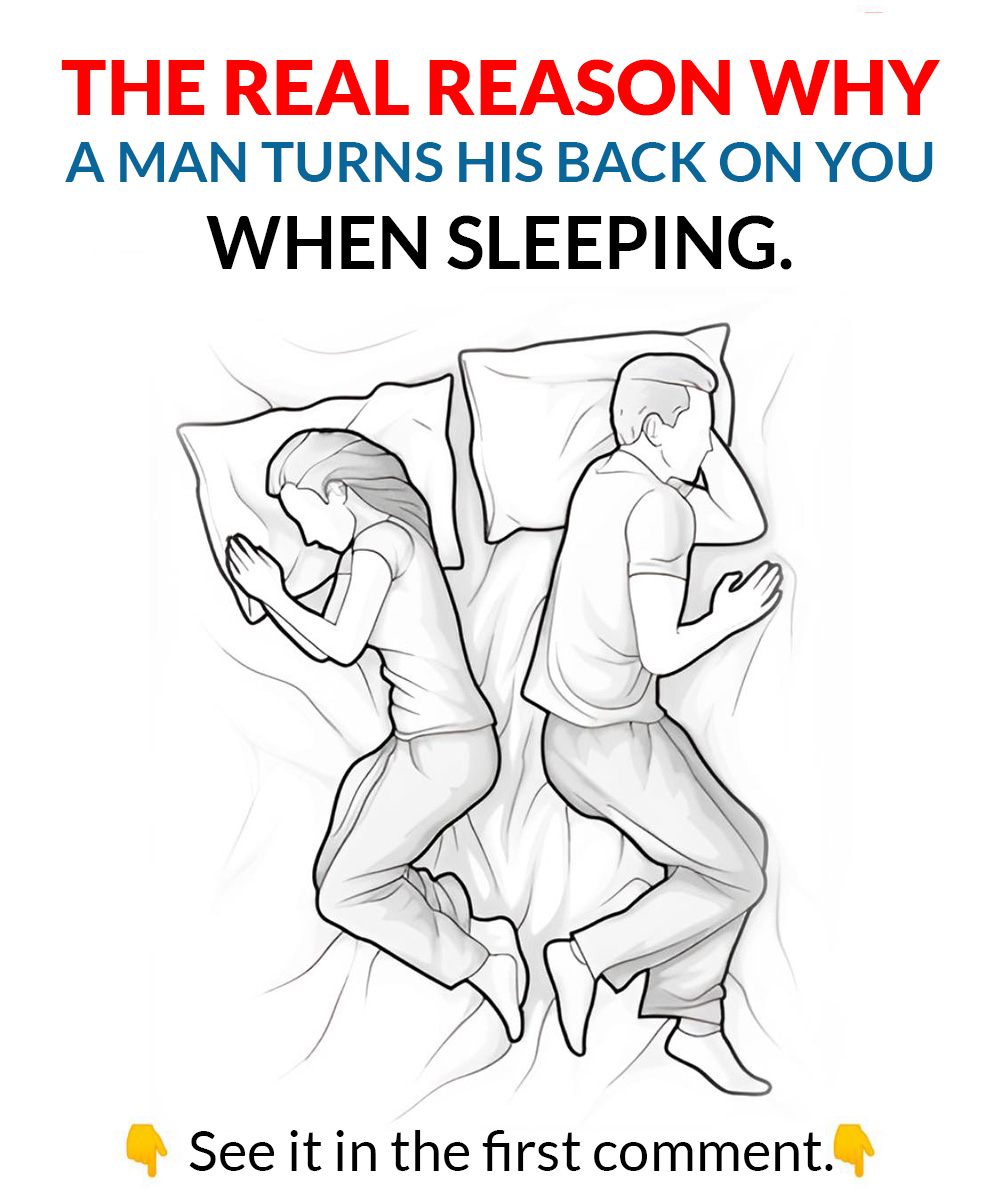Have you ever wondered why your partner turns their back on you when sleeping? While it might feel a little personal, especially if you’re hoping for nighttime cuddles, the reasons behind this sleeping position might actually be more comforting than you think.

According to health experts, one of the most important components of overall wellness is getting proper rest. It’s not just about feeling refreshed in the morning—your body requires seven to nine hours of sleep to repair cells, process emotions, and maintain its various systems.
Without enough sleep, you’re opening yourself up to a whole host of problems: increased risk of stroke, spikes in appetite that lead to weight gain, diabetes, weakened bones, and even heart issues. Beyond individual sleep health, sleeping with a partner also has its benefits.
Studies have shown that sharing a bed with someone can lead to reduced stress, better mood, fewer episodes of insomnia, and even improved body temperature regulation. That said, the way couples sleep together says more than just how comfy the mattress is—it can actually provide subtle insights into the emotional and psychological dynamics of the relationship. American psychologist Richard Wiseman from the University of Hertfordshire conducted a study that explored these sleeping patterns among couples. His findings, presented at the Edinburgh International Science Festival in 2014, revealed some fascinating details.
The majority of couples—about 42%—sleep back to back. Around 34% maintain some form of contact, such as touching feet or holding hands, while 31% tend to sleep facing the same direction without necessarily touching.
Interestingly, Wiseman’s research found that couples who sleep closer together report higher levels of happiness and satisfaction. But here’s the key takeaway: even if they aren’t physically touching, just lying on the same side or close by signals a strong emotional connection. So, if your partner turns their back on you during the night, don’t be too quick to assume something’s wrong. In fact, this position could mean they respect your independence while still maintaining a loving bond. Experts in psychology and relationships suggest that physical space in sleep can reflect emotional trust. Sleeping with your back turned to your partner often indicates that both people feel secure enough in the relationship to value their own personal space. It doesn’t mean love is absent; rather, it suggests comfort, trust, and emotional maturity. It’s also worth noting that sleeping positions can be influenced by factors beyond relationship dynamics. People may sleep a certain way due to chronic pain, old habits from childhood, or even how the bed is positioned in the room. So while body language during sleep might offer some insight, it shouldn’t be viewed as the definitive measure of relationship quality. Of course, that doesn’t mean we should ignore what we observe. Every movement or posture during sleep can potentially communicate something deeper. But it’s important to interpret these cues with nuance and context. The emotional closeness of a couple is often built through everyday interactions, shared experiences, and mutual understanding—not just how they align themselves in bed. Another critical point raised in the Hertfordshire study is that while physical touch can enhance closeness, it’s not the sole indicator of relationship happiness. Some couples may feel closest when snuggled up together, while others thrive when given a bit more room to breathe. This doesn’t mean one style is better than the other; it just reflects different ways people express love and connection. So the next time you wake up and realize your partner has turned away, don’t take it to heart. Chances are, they feel safe, comfortable, and emotionally secure. They might simply be honoring their own need for space while trusting that your bond is strong enough to handle the distance. After all, true intimacy isn’t just about staying physically close all night—it’s about being emotionally close enough that physical positions don’t shake your trust.





